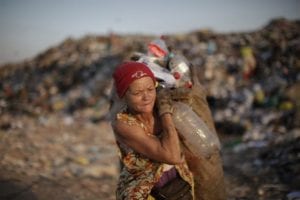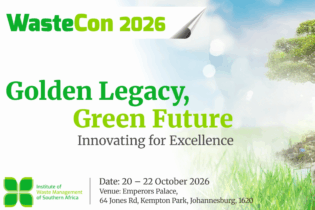One hundred and thirteen waste pickers from 42 towns across all provinces in South Africa convened to celebrated a decade of work since the 2009 launch of South African Waste Pickers Association, a movement of and for all waste pickers working in South Africa.
This Biennial General Meeting (BGM) took place from the 19th – 22nd August in Kempton Park, Johannesburg for the 2019 of South African Waste Pickers Association (SAWPA). The BGM was not only about the review of the work over the last two years but also planning for the next two years. There were many victories that were shared and motivated the organisation to continue the work towards providing solutions to waste, challenges which many South African municipalities are failing to address. “As waste pickers we provide the only form of solid waste collection in areas that are not serviced by government, and our work enhances government services in serviced areas, providing high recycling rates. We also contribute to local economies, public health and safety, and environmental sustainability,” said SAWPA. SAWPA is an organisation of more than 1100 registered waste pickers in all 9 provinces in South Africa. According to the Council of Scientific and Industrial Research there are up to 90 000 people that earn a livelihood through the informal waste sector.SAWPA is based on waste dump sites and on streets in cities across the country, with all members involved in collecting and selling waste as a livelihood strategy.
They divert and recycle materials such as organics, plastic, cardboard, paper, metals away from waste dumps, where good material becomes waste and result in increased greenhouse gas emissions and worsening impacts of climate change. The South African Local Government Association (SALGA) and the Department of Environmental Affairs (DEA) have committed itself to working with SAWPA. With the registration of waste pickers is the main priority. The guidelines for Waste Picker Integration in South Africa into municipal waste management systems has been finalised and is to be adopted by the DEA later this year. This document will be implemented at a local level by municipalities. “While recognition for our contributions is growing in some places, we often face low social status, deplorable living and working conditions, and get little support from local government. Increasingly, we face challenges due to competition and unfair market prices by the private sector.” The organisation has committed to do the following:- Continue organising across the country;
- Work to unite and speak with one voice behind SAWPA;
- Continue with the formal registering of members;
- Organising relevant learning and supporting opportunities for waste pickers;
- Fight for recognition of waste pickers and local cooperatives by local and district municipalities;
- Challenge municipalities to work with us;
- Continue organising toward Zero Waste societies; and






